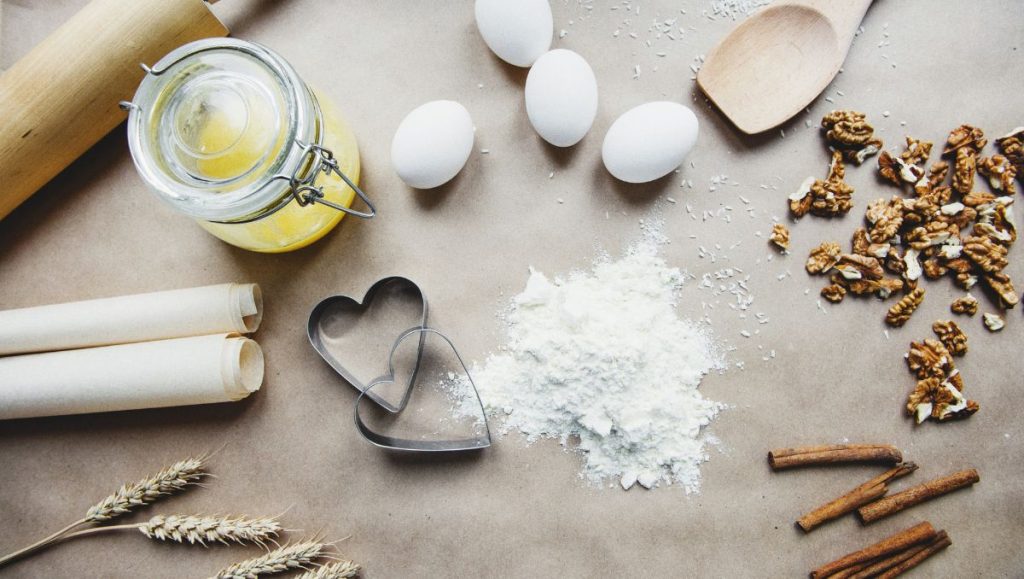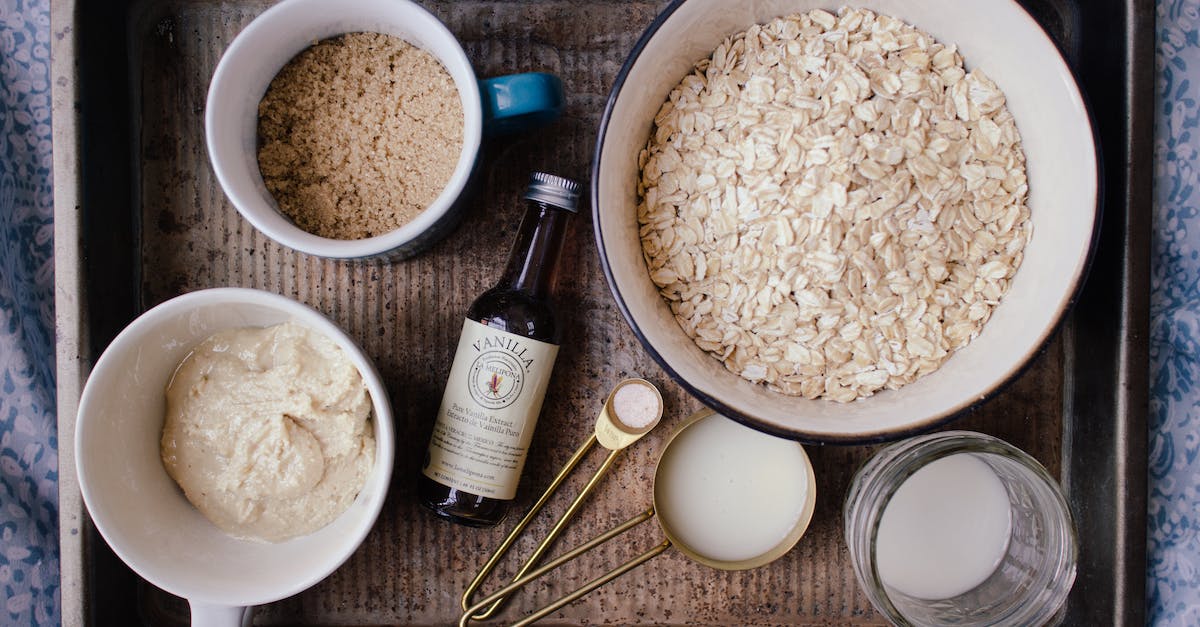This post contains affiliate links. See the affiliate disclaimer here.
Are you ready to whip up a delicious cake or bake some mouthwatering cookies, only to find that your baking powder has expired? Don’t panic just yet! Using expired baking powder can result in your baked goods not rising properly, but there’s a simple test you can do to determine if it’s still good enough to use. In this article, we’ll explore the effects of expired baking powder and how to check if it’s still fresh.
Expired baking powder may not be as effective in helping your cakes and dough rise. It’s always best to use baking powder before its expiration date to prevent any baking mishaps. But how can you tell if your baking powder is still good?

Effects of using expired baking powder
Using expired baking powder can have various effects on your baking. It’s important to understand these effects to ensure the best results.
1. Reduced Leavening Power: Baking powder loses its potency over time. When it expires, it may not effectively leaven your baked goods. As a result, your treats may turn out flat, dense, or unevenly risen. This can be disappointing, especially if you were expecting light and fluffy baked goods.
2. Bitter Taste: Another effect of using expired baking powder is the development of a bitter taste in your creations. As baking powder ages, its chemical composition changes, which can affect the overall flavor of your baked goods. Nobody wants to bite into a treat that leaves a bitter aftertaste.
3. Spoilage: While using slightly expired baking powder may not cause harm, there is a potential for spoilage. Over time, moisture and air can enter the container, leading to the growth of bacteria or mold. Consuming baked goods made with spoiled baking powder can put your health at risk.
4. Inconsistent Results: Using expired baking powder may yield inconsistent results in your baking. The leavening power diminishes over time, leading to unpredictable outcomes. Your cakes, cookies, or muffins may end up with uneven textures or may not rise properly.
To avoid these effects and ensure successful baking adventures, it’s crucial to check for signs of spoilage or reduced potency before using baking powder past its expiration date. While using baking powder slightly past its expiration date may not be harmful, it’s always best to prioritize fresh baking powder to guarantee fluffy, delicious results.
Remember, a quick and easy test to determine if baking powder is still good to use is to add one teaspoon of it to one-third cup of hot water. If the mixture bubbles and fizzes, your baking powder is still potent and can be used confidently. If not, it’s time to replace it with a fresh one.
Importance of using fresh baking powder
Using fresh baking powder is essential for achieving the best results in your baked goods. Here’s why it’s important to make sure your baking powder is still fresh before using it:
- Leavening Power: Baking powder is responsible for creating the fluffy texture in baked goods. Over time, the leavening power of baking powder can diminish, resulting in less rise and a denser texture in your cakes, muffins, and cookies. By using fresh baking powder, you ensure that your baked goods will turn out light and airy.
- Flavor: Expired baking powder can develop a bitter taste, which can affect the overall flavor of your baked goods. Using fresh baking powder ensures that your treats will taste delicious and not have any unwanted aftertastes.
- Consistency: When baking, it’s important to have consistent results. Expired baking powder can lead to unpredictable outcomes in your recipes. Your cakes might sink in the middle or your cookies could spread too much. By using fresh baking powder, you can have more control over the outcome of your baked goods.
- Safety: While expired baking powder is generally safe to consume, there is a risk of spoilage if it has been stored improperly. Spoiled baking powder may have an off smell or appearance, and using it in your recipes could lead to foodborne illnesses. By using fresh baking powder, you minimize the chance of any potential food safety issues.
To ensure that you are using fresh baking powder, it’s important to check the expiration date on the packaging. Additionally, keep your baking powder stored in a cool, dry place away from moisture or heat sources. By following these guidelines, you can ensure that your baking powder remains fresh and effective for all your baking needs.
How to check if baking powder is still good
If you’re an occasional baker and your baking powder has been sitting in the dark corners of your pantry for months, it’s wise to check if it’s still active before using it for that special celebration cake. Here’s a simple test you can do to determine the potency of your baking powder:
- Gather your baking powder and a small bowl: Start by locating your baking powder and grab a clean, dry small bowl to perform the test.
- Measure out half a teaspoon of baking powder: Take half a teaspoon of your baking powder and place it in the small bowl.
- Pour boiling water over the baking powder: Carefully pour a quarter cup (65ml) of boiling water over the baking powder in the bowl.
- Observe the reaction: Watch for any signs of immediate bubbling and foaming. If the baking powder is still active, you should see energetic bubbles forming as you pour the boiling water. Note that the bubbles will subside quite quickly once you finish pouring.
- Interpret the results: If you see energetic bubbling and foaming, it indicates that your baking powder is still good to use. On the other hand, if there is no reaction, and the baking powder does not foam, it is considered dead and should be replaced.
Remember, it’s essential to perform a quick test like this to ensure that your baked goods rise properly and have the desired texture. Using expired or ineffective baking powder can lead to flat cakes and disappointing results. So, take a moment to verify the potency of your baking powder before embarking on your baking adventures.
Now that you know how to check the quality of your baking powder, you can proceed confidently in your baking endeavors.
Conclusion
Ensuring that your baking powder is fresh and effective is crucial for achieving the best results in your baking endeavors. Using expired baking powder can lead to reduced leavening power, a bitter taste, and inconsistent outcomes.
To determine if your baking powder is still good, simply perform a quick and easy test by adding hot water and observing the reaction. If it fizzes vigorously and produces bubbles, you can confidently use it in your recipes. However, if the reaction is weak or nonexistent, it’s time to replace your baking powder.
Remember, proper storage is key to maintaining the freshness of your baking powder. Keep it in a cool, dry place, away from moisture and heat. Additionally, consider labeling the container with the purchase date to help you keep track of its freshness.
By following these simple guidelines, you can ensure that your baked goods rise beautifully and taste delicious every time. So, go ahead and check the freshness of your baking powder before your next baking adventure. Happy baking!
What happens when you don’t use baking powder?
Baked goods will not rise and will turn out flat and dense.
Why do people keep baking powder in the fridge?
Storing baking powder in the fridge helps maintain its freshness and effectiveness.
Can you use expired baking powder?
Expired baking powder may have reduced leavening power and can lead to inconsistent results or a bitter taste. It is best to replace expired baking powder.
How do I know if my baking powder is OK?
Perform a simple test by adding hot water to baking powder. If it fizzes vigorously and produces bubbles, it is still potent and can be used.
Does 1 year expired baking powder work?
Expired baking powder may have a delayed or weak reaction, dissolve, or sink to the bottom. It is best to discard expired baking powder as it won’t react properly in recipes.

